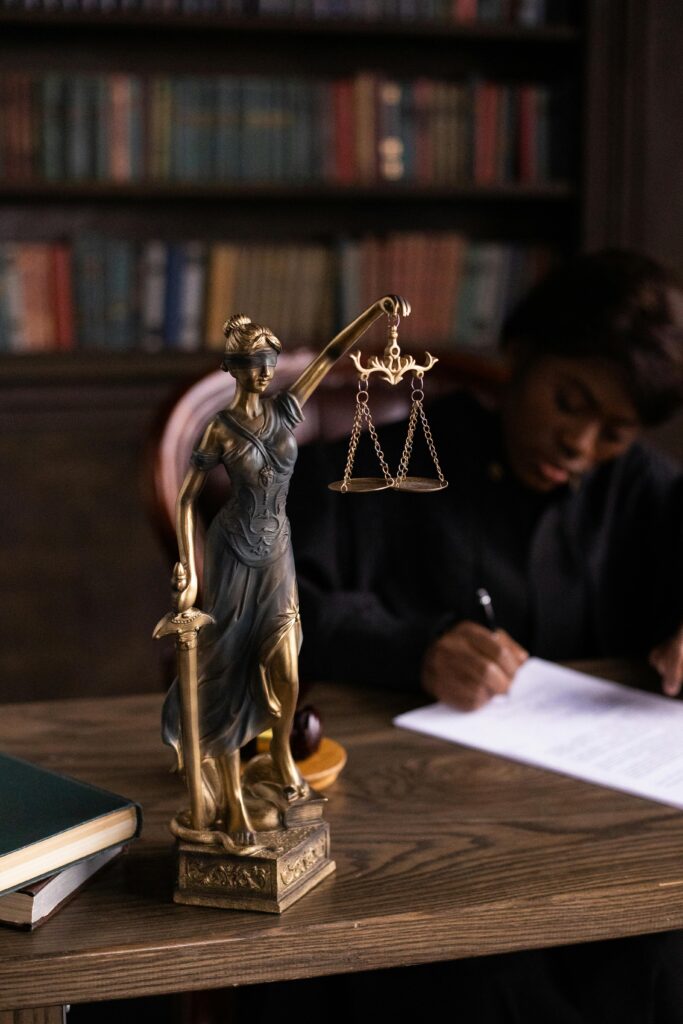Published On: August 25th 2025
Authored By: Anisha Parveen
Jamia Hamdard, New Delhi
Abstract
The Bhartiya Nagrik Suraksha Sanhita, 2023 aim to reforms Indian criminal law, replacing CrPC. It grants police broader powers such as reforming police custody provision, preventive detention, arrest without warrants. While these changes aim to improve efficiency and public safety, they raise concerns about potential misuse, leading to harassment, loss of privacy, and suppression of freedoms. Critics argue that unchecked police powers could create a “police state” where citizens’ rights are undermined.
Introduction
The new laws under the Bhartiya Nagrik Suraksha Sanhita (BNSS) centralize police powers, give police, and state official’s immunity from accountability (centralize powers of the police, providing immunity and ensuring impunity), and make it easier for them to act without consequences. This weakens the rights of victims and makes it harder for them to get justice. While these laws claim to replace colonial laws, they give the state excessive powers, like those of a colonial regime, rather than strengthening constitutional values.
The principles underlying the Indian Constitution have not been reflected in these laws. Instead, they appear designed to increase the state’s power while reducing citizens’ constitutional rights. This goes against the Constitution’s promise to “we, the people of India.” Rather than limiting police authority, these laws risk officially transforming India from an informal police regime into a legally recognized police state.
Extension of Police Power in BNSS
Extending powers of remand: Sec.187 [Sec.167 CrPC]
The controversy surrounding this change in criminal law arises due to the significant increase in the period of police custody allowed under Section 187(3) of the BNSS. Section 187 of the BNSS introduces significant changes to the law on police custody, raising serious concerns about the protection of accused persons.
Under the CrPC, police custody was limited to a maximum of 15 days within the first 15 days of arrest, after which the accused had to be placed in judicial custody(prison). However, this safeguard has been removed in the BNSS. Now, this allows the police to bring the accused back into custody multiple times during these 60/90 days, instead of restricting their control to the initial 15 days.
Furthermore, the wording of Section 187(3) omits the crucial phrase from Section 167(2) of the CrPC that limited police custody to 15 days. This omission allows the magistrate to authorize police custody for the entire 60- or 90-day period, depending on the offence.[1]
- After going through this provision, it clearly shows that it does not increase time of police custody but it still problematic such as:
- Risk of police abuse – Extending police custody increases the chances of extrajudicial practices like physical or psychological coercion to force confessions.
- Violation of legal protection – The 15-day cap under CrPC was a safeguard upheld by the Supreme Court to protect the rights of the accused. Extending this weakens those protections.
- In Central Bureau of Investigation vs. Anupam J. Kulkarni (1992) [2]it was held that after expiry of the first 15 days, detention can only be that of judicial custody.
- Judicial Oversight – While police custody can only be granted by a magistrate, the prolonged period could strain the judiciary’s ability to effectively monitor and prevent misuse.
This opens the door for repeated harassment of the accused by moving them between police and judicial custody multiple time.
“Courts have traditionally been extremely reluctant in granting bail when there is a possibility of police custody. Now that the window has increased, it may become even more difficult to get bail,” Bharat Chugh, a former judge at Delhi’s criminal courts and Supreme Court lawyer said.
With courts hesitant to grant bail during the possibility of police custody, the change in law could have “grave implications for life and personal liberty”, said Chugh[3].
Apart from this Union Home Minister while addressing a press conference he clarified that the maximum period under BNSS will remain the same as was provided for in Section 167 of the CrPC[4].=
Persons bound to conform to lawful directions of police: Sec. 172
This is the new provision, which is inserted in BNSS, it expand the powers of the police while taking preventive action.
This section grants significant powers to the police, raising concerns about abuse and lack of safeguards for citizens. This provision mandates that all individuals must comply with the lawful directions of police officers. If a person resists, refuses, ignores, or disregards such directions, the police can take them into custody and either produce them before a magistrate or release them in minor cases within 24 hours. However, this sweeping power is not balanced with any provisions to protect citizens from potential misuse or wrongful application of these powers. This effectively grants the police significant authority without accountability, creating a risk of impunity for any wrongful actions or abuse of power. Such unchecked authority raises serious concerns about citizens’ rights and the potential for misuse by law enforcement[5].
Under this. BNSS empowers police to arrest without warrant. “In this primary concerns stemming from section 172 is the erosion of due process rights and the presumption of innocence. By granting police officers the authority to detain individuals without sufficient cause or oversight, there is a real danger of undermining the principles of fairness and justice within the legal system”[6].
Accountability of abuse of power by public servant: Sec. 175(4) and 223(2)
BNSS introduce significant hurdles to holding public servants accountable for abuse of power, particularly in the context of their official duties.
- Section 175(4):
This provision imposes new conditions on magistrates for taking cognizance of complaints against public servants accused of abuse of power during their official duties. A magistrate can only order an investigation if :
- A report on the incident’s facts and circumstances is submitted by the accused official’s superior.
- The accused public servant is given an opportunity to explain the situation that led to the incident.
These requirements delay the initiation of any legal action and provide the accused public servant with time to defend or justify their actions before formal proceedings even begin, potentially diluting accountability.
- Section 223(2):
Similarly, this new provision restricts courts from taking cognizance of complaints against public servants unless:
- The accused public servant is given a chance to explain the circumstances of the alleged incident.
- (b) A factual report on the incident is obtained from their superior officer.
This addition effectively grants public servants and police officers an extra layer of protection, making it harder for citizens to seek remedies for abuse of power[7].
These provisions create procedural barriers, delaying justice and discouraging citizens from filing complaints. They give public servants undue immunity and protection, undermining accountability. The requirement for a report from superior officers, who may have vested interests in protecting their subordinates, raises concerns about impartiality. By prioritizing the public servant’s explanation over the citizen’s complaint, the balance of justice tilts in favor of the accused official.
Procedure for Investigation: Sec.176
It introduces a significant change to the process of police investigation, effectively reducing accountability. While it largely mirrors Section 157 of the CrPC, there is a key omission that raises concerns.
Under Section 157(2) of the CrPC, if a police officer decides not to investigate a complaint, they are required to inform the complainant of this decision. This notification is critical as it allows the complainant to seek alternative legal remedies, such as approaching a magistrate for action.
However, in Section 176(2) of the BNSS, this requirement has been removed. Now, if the police decide that a complaint is not serious enough or lacks sufficient grounds for investigation, they are not obligated to inform the complainant[8].
- What will the implication of this section -?
- If the informant/complainant’s complaint is not taken up, they will be left in the dark, preventing them from seeking justice through other legal avenues.
- the police can choose not to investigate without any checks or accountability, potentially enabling misuse of power or selective enforcement of the law.
- Citizens may lose faith in the system if their complaints are ignored without explanation or transparency, further alienating them from justice.
This provision shields police officers from scrutiny and removes a vital safeguard for complainants, significantly weakening accountability and transparency in the investigation process.
Registration of FIR in Cognizable Offence – Sec. 173
Cognizable offences are serious crimes, often non-bailable, allowing police to arrest without a warrant based on the First Schedule or other laws. Under the Bhartiya Nagrik Suraksha Sanhita (BNSS), 2023, Section 173(3) permits police to conduct a preliminary enquiry, with senior officer approval, to determine if there is a prima facie case before registering an FIR. This enquiry must be completed within 14 days.
However, this provision contradicts the Supreme Court’s judgment in Lalita Kumari vs. Government of Uttar Pradesh, which mandates that police must register an FIR if the complaint discloses a cognizable offence under Section 154 of the CrPC[9].
The provision allowing police to decide whether to register an FIR after a preliminary enquiry gives them significant discretion, which can be misused. Police officers might delay or deny FIR registration, especially in cases involving vulnerable individuals, due to bias, corruption, or external pressure. Victims could be forced to depend on the goodwill of the police, making it harder for them to seek justice. This creates a risk of favoritism, harassment, or even threats, allowing powerful offenders to influence investigations and avoid accountability.
Conclusion
BNSS introduced significant changes in Indian criminal system such as modernizing justice process like introducing technology, forensic science in investigation, examined through electronic means (video conferencing)etc. with this it also expand the police powers in many ways which increase discretion and immunity granted to law enforcement raise serious concerns about accountability and potential misuse of authority.
All these changes risk undermining constitutional safeguards and citizens’ rights, creating conditions for a centralized, state- controlled system that resembles a police state. Can we say that through this act efforts are being made to pivot towards the crime control model , wherein without caring about individual right, all focus is upon the prevention of crime no matter the consequence.
References
[1] People’s Union for Civil Liberties, “Turning a De Facto Police Regime to a De Jure Police State” (11 July, 2024) < https://pucl.org/manage-writings/turning-a-de-facto-police-regime-to-a-de-jure-police-state-critique-of-the-3-new-criminal-laws/ >
[2] Priyanka Agarwal, “BNSS introduces handcuffs and in- absentia trails, widens preventive detention and police custody” (20 August, 2023) < https://theleaflet.in/criminal-justice/bnss-introduces-handcuffs-and-in-absentia-trials-widens-preventive-detention-and-police-custody >
[3] Saurav Das, “Will new criminal bills turn India into a police state ahead of 2024 vote?” (17 January, 2024) < https://www.aljazeera.com/news/2024/1/17/will-new-criminal-bills-turn-india-into-a-police-state-ahead-of-2024-vote >
[4] “Remand time still remains 15 days : Union Minister Amit Shah” (2 July,2024) < https://timesofindia.indiatimes.com/city/delhi/police-remand-period-clarified-by-union-home-minister-amit-shah-under-bnss/articleshow/111415057.cms >
[5] Priyanka Agarwal, “BNSS introduces handcuffs and in- absentia trails, widens preventive detention and police custody” (20 August, 2023) < https://theleaflet.in/criminal-justice/bnss-introduces-handcuffs-and-in-absentia-trials-widens-preventive-detention-and-police-custody >
[6] “BALANCING AUTHORITY AND ACCOUNTABILITY SECTION 172 OF THE BNSS” (March 6, 2024) < https://menhelpline.org/2024/03/06/balancing-authority-and-accountability-examining-section-172-of-the-bnss/#:~:text=Moreover%2C%20the%20potential%20for%20abuse,the%20injustice%20faced%20by%20victims >
[7] People’s Union for Civil Liberties, “Turning a De Facto Police Regime to a De Jure Police State” (11 July, 2024) < https://pucl.org/manage-writings/turning-a-de-facto-police-regime-to-a-de-jure-police-state-critique-of-the-3-new-criminal-laws/ >
[8] People’s Union for Civil Liberties, “Turning a De Facto Police Regime to a De Jure Police State” (11 July, 2024) < https://pucl.org/manage-writings/turning-a-de-facto-police-regime-to-a-de-jure-police-state-critique-of-the-3-new-criminal-laws/ >
[9] Pushkraj Deshpande, Yohaan Abraham “Overview of Criminal Investigation and Trails under BNSS, BNS, BSA – Part 1” (24th January, 2024) < https://www.barandbench.com/law-firms/view-point/overview-criminal-investigations-trials-bnss-bns-bsa-part-i >




